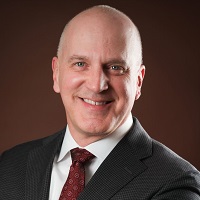Seven Ways to Protect Older Adults from Financial Abuse
Scams are everywhere, and older people are prime targets. It’s critical to be vigilant, safeguard personal info, get paperwork in order and more.


Profit and prosper with the best of Kiplinger's advice on investing, taxes, retirement, personal finance and much more. Delivered daily. Enter your email in the box and click Sign Me Up.
You are now subscribed
Your newsletter sign-up was successful
Want to add more newsletters?

Delivered daily
Kiplinger Today
Profit and prosper with the best of Kiplinger's advice on investing, taxes, retirement, personal finance and much more delivered daily. Smart money moves start here.

Sent five days a week
Kiplinger A Step Ahead
Get practical help to make better financial decisions in your everyday life, from spending to savings on top deals.

Delivered daily
Kiplinger Closing Bell
Get today's biggest financial and investing headlines delivered to your inbox every day the U.S. stock market is open.

Sent twice a week
Kiplinger Adviser Intel
Financial pros across the country share best practices and fresh tactics to preserve and grow your wealth.

Delivered weekly
Kiplinger Tax Tips
Trim your federal and state tax bills with practical tax-planning and tax-cutting strategies.

Sent twice a week
Kiplinger Retirement Tips
Your twice-a-week guide to planning and enjoying a financially secure and richly rewarding retirement

Sent bimonthly.
Kiplinger Adviser Angle
Insights for advisers, wealth managers and other financial professionals.

Sent twice a week
Kiplinger Investing Weekly
Your twice-a-week roundup of promising stocks, funds, companies and industries you should consider, ones you should avoid, and why.

Sent weekly for six weeks
Kiplinger Invest for Retirement
Your step-by-step six-part series on how to invest for retirement, from devising a successful strategy to exactly which investments to choose.
The sad truth is we all become more vulnerable to scams and financial abuse as we age into our later years. Here are some sobering statistics from Consumer Affairs:
- Older people are swindled out of more than $3 billion each year.
- More than 3.5 million older adults are victims of financial exploitation each year.
- Older people targeted by fraudsters suffer an average loss of $34,200.
As a financial adviser, I believe it’s crucial to ensure that our clients’ hard-earned wealth remains secure and protected from potential financial abuse. We can play a pivotal role in guiding our clients through the complexities of preventing elder financial abuse. Here are some insights I often share with clients and, with their permission, with their adult children, too, as they are often more concerned about scams and financial abuse than their parents.
1. Raise awareness.
A primary step in the battle against elder financial abuse is raising awareness. You must talk about the potential risks associated with growing older, including scams, fraudulent investments and exploitation by family members or caregivers.
From just $107.88 $24.99 for Kiplinger Personal Finance
Become a smarter, better informed investor. Subscribe from just $107.88 $24.99, plus get up to 4 Special Issues

Sign up for Kiplinger’s Free Newsletters
Profit and prosper with the best of expert advice on investing, taxes, retirement, personal finance and more - straight to your e-mail.
Profit and prosper with the best of expert advice - straight to your e-mail.
You can use your own experiences or trending news to start the conversation. A good resource is the AARP Scams & Fraud page with up-to-date information on fraudulent schemes and quizzes about scams.
2. Maintain open communication.
Just like meeting with your financial adviser quarterly, you should be talking about finances with your loved ones this frequently. We encourage honest and clear communication within families because this can lead to early detection and prevention of financial abuse.
Talking about money can be challenging for families, but an open dialogue helps identify unusual or suspicious activities related to finances that could indicate abuse.
3. Arrange for a durable power of attorney.
A durable power of attorney (POA) should be trustworthy and capable of managing their loved one’s finances if incapacitated. Speak with your financial adviser or elder law attorney about selecting the right financial power of attorney for your circumstances.
If you are a solo ager, your attorney may be able to act as your POA. See my previous article on Tips for Managing Money for an Incapacitated Loved One.
4. Get estate planning in order.
Another essential aspect of wealth management for older adults is estate planning. It’s crucial to discuss the importance of creating or updating a will, trust or estate plan. We advise clients to seek legal counsel to understand the legal protections available and explore options for safeguarding your assets. Not only does this protect your assets, but it also ensures that your wishes are followed accurately.
A well-structured estate plan can help transition wealth to the next generation.
5. Regularly monitor accounts.
Reviewing financial statements, bank accounts and investment portfolios monthly is essential. A few simple steps can help avert fraud, such as setting phones to send unknown numbers to voicemail, using a credit freeze and setting stricter privacy controls on social media. Signing up for financial account and credit monitoring helps detect any irregularities or unauthorized transactions.
It may make sense, in some cases, to allow a trusted loved one to also monitor your parents’ accounts, depending on their support needs and comfort level. Timely identification is essential to prevent financial abuse.
6. Safeguard personal information.
The digital world has increased risks, and scams abound online. Using strong, unique passwords is a simple yet effective measure to enhance online security. Consider using a password manager like LastPass, which offers a free password generator.
We also recommend steps like keeping documents secure, shredding sensitive papers and avoiding sharing personal information with unknown parties. These seemingly small actions can make a big difference in safeguarding against fraud.
7. Stay informed about scams.
Financial scams and elder abuse tactics evolve continually. The scams (e.g., romance scams, grandparent scams, investment scams, phone scams, sweepstakes scams, crime scams, Medicare scams, phishing, charity scams, funeral scams, IRS impersonation scams, counterfeit prescription drugs, malware, false investment opportunities, health product scams, home repair scams, lotteries, reverse mortgage scams, account takeover scam texts, cryptocurrency fraud, fake insurance and identity theft) are constantly evolving and regularly threatening older adults. The National Council on Aging (NCOA) explains some of the most common scams.
Vigilance is the key. Being diligent and partnering with an elder law attorney and your trusted financial adviser helps to stave off predatory efforts against older adults.
Related Content
- Financial Abuse Is on the Rise: What It Is and What to Do About It
- Signs of Financial Abuse in Marriage: What to Watch For
- What to Discuss With Your Aging Parents as They Get Older
- What Gen X Needs to Know About Their Aging Parents' Finances
- How to Monitor Your Credit Reports for Free
Profit and prosper with the best of Kiplinger's advice on investing, taxes, retirement, personal finance and much more. Delivered daily. Enter your email in the box and click Sign Me Up.

Financial adviser Tom West, CLU®, ChFC®, AIF®, founded Lifecare Affordability Plan (LCAP) to address a critical need for actionable planning that integrates finances, healthcare and senior housing. Tom has nearly 30 years of experience guiding families through financial and healthcare decisions. By bridging the gap between finance and healthcare, LCAP’s experienced team works with individuals and financial advisers to provide families with a financial strategy that meets changing healthcare needs while preserving the caregiver’s quality of life.
-
 Dow Leads in Mixed Session on Amgen Earnings: Stock Market Today
Dow Leads in Mixed Session on Amgen Earnings: Stock Market TodayThe rest of Wall Street struggled as Advanced Micro Devices earnings caused a chip-stock sell-off.
-
 How to Watch the 2026 Winter Olympics Without Overpaying
How to Watch the 2026 Winter Olympics Without OverpayingHere’s how to stream the 2026 Winter Olympics live, including low-cost viewing options, Peacock access and ways to catch your favorite athletes and events from anywhere.
-
 Here’s How to Stream the Super Bowl for Less
Here’s How to Stream the Super Bowl for LessWe'll show you the least expensive ways to stream football's biggest event.
-
 How to Add a Pet Trust to Your Estate Plan: Don't Leave Your Best Friend to Chance
How to Add a Pet Trust to Your Estate Plan: Don't Leave Your Best Friend to ChanceAdding a pet trust to your estate plan can ensure your pets are properly looked after when you're no longer able to care for them. This is how to go about it.
-
 Want to Avoid Leaving Chaos in Your Wake? Don't Leave Behind an Outdated Estate Plan
Want to Avoid Leaving Chaos in Your Wake? Don't Leave Behind an Outdated Estate PlanAn outdated or incomplete estate plan could cause confusion for those handling your affairs at a difficult time. This guide highlights what to update and when.
-
 I'm a Financial Adviser: This Is Why I Became an Advocate for Fee-Only Financial Advice
I'm a Financial Adviser: This Is Why I Became an Advocate for Fee-Only Financial AdviceCan financial advisers who earn commissions on product sales give clients the best advice? For one professional, changing track was the clear choice.
-
 I Met With 100-Plus Advisers to Develop This Road Map for Adopting AI
I Met With 100-Plus Advisers to Develop This Road Map for Adopting AIFor financial advisers eager to embrace AI but unsure where to start, this road map will help you integrate the right tools and safeguards into your work.
-
 The Referral Revolution: How to Grow Your Business With Trust
The Referral Revolution: How to Grow Your Business With TrustYou can attract ideal clients by focusing on value and leveraging your current relationships to create a referral-based practice.
-
 This Is How You Can Land a Job You'll Love
This Is How You Can Land a Job You'll Love"Work How You Are Wired" leads job seekers on a journey of self-discovery that could help them snag the job of their dreams.
-
 65 or Older? Cut Your Tax Bill Before the Clock Runs Out
65 or Older? Cut Your Tax Bill Before the Clock Runs OutThanks to the OBBBA, you may be able to trim your tax bill by as much as $14,000. But you'll need to act soon, as not all of the provisions are permanent.
-
 The Key to a Successful Transition When Selling Your Business: Start the Process Sooner Than You Think You Need To
The Key to a Successful Transition When Selling Your Business: Start the Process Sooner Than You Think You Need ToWay before selling your business, you can align tax strategy, estate planning, family priorities and investment decisions to create flexibility.